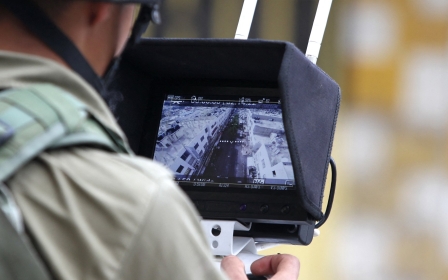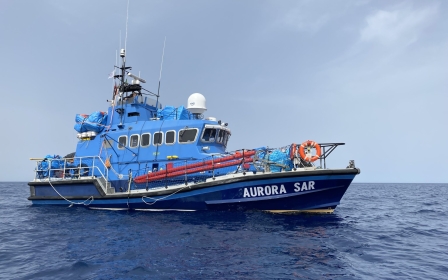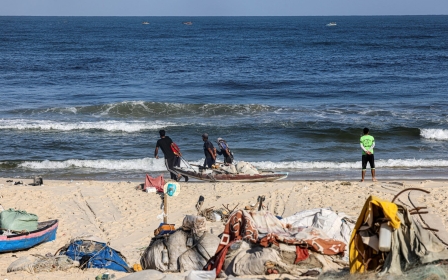Tunisia moves to repatriate toddler who arrived alone in Italy on migrant boat
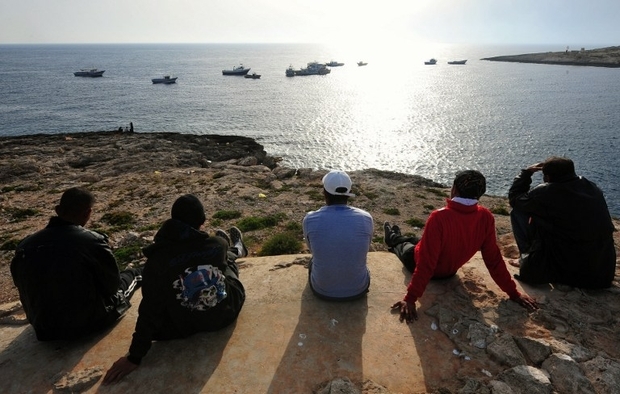
Authorities in Tunisia have begun diplomatic moves to repatriate a four-year-old Tunisian girl from Italy who landed on the island of Lampedusa earlier this month, after arriving alone on a crowded boat carrying 70 migrants.
The girl, referred to by authorities as Linda, arrived on the island after travelling for 26 hours at sea between 16 and 17 October.
Her parents say they were separated from Linda, when the boat on which they were also to travel on suddenly set sail from the Tunisian coastal town of Sayada without them and her seven-year-old sister.
When the parents went to a police station to report the incident they were arrested and accused of abandoning a minor.
After media pressure, the parents, who could face charges of human trafficking, were released but banned from travelling.
New MEE newsletter: Jerusalem Dispatch
Sign up to get the latest insights and analysis on Israel-Palestine, alongside Turkey Unpacked and other MEE newsletters
'[Linda's] constantly asking about her parents and when she will be able to see them again'
- Majdi Karbai, former Tunisian MP
"Linda's doing well, and she's staying in a community for children in Palermo, after having been transferred from Lampedusa to a community in the province of Agrigento," Majdi Karbai, who was elected to Tunisia's parliament in 2019 and currently lives in Italy, told Middle East Eye.
"[Linda's] constantly asking about her parents and when she will be able to see them again. Her parents are in Tunisia and Tunisian authorities [on Wednesday] imposed a travel ban on them," said Karbai.
"They would rather repatriate Linda, but the procedures are not so easy since now the girl is under the legal protection of the local tutor.”
Karbai added that the girl does not understand what is happening and is suffering from emotional shock despite being in touch by phone with her parents.
After being alerted by one of Linda's family members once the boat left Tunisia, Karbai, who previously worked on Lampedusa as a cultural mediator in 2011, had been able to notify Italian authorities and Save the Children before Linda landed on the island.
Save the Children has provided support to Linda, accompanying her at the community for children in Palermo.
"She's playing with other children and a psycho-social support team is helping her releasing fears and pressure," Giovanna De Benedetto, a spokesperson for Save the Children, told MEE. "We are taking care of her well-being."
The Tunisian Ministry of Family, Women, Children and the Elderly said in a statement that discussions are underway with the Tunisian consular services in Palermo to repatriate Linda and a Tunisian diplomatic delegation is expected to meet with the judge of the Juvenile Court in the Sicilian capital on Friday.
Medical treatment
As winter approaches, thousands of refugees and migrants have been braving the Mediterranean Sea in rubber or wooden boats, in search for a brighter future in Europe, with traffickers taking advantage of the warmest autumn on record.
According to Italy's interior ministry, 79,647 people have landed on Italian shores so far this year, while more than 1,200 have died, adding to the horrifying tally of almost 25,000 deaths since 2014.
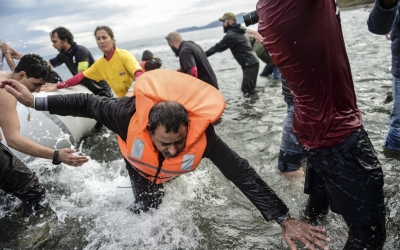
The family member that notified Karbai of the boat's departure told him that Linda's parents, from Sayeda, near Monastir, had decided to leave Tunisia due to the deep economic and political crisis of the country.
Her father is a street food vendor, selling local chapati and mlawi sandwiches in their hometown, but with the wheat crisis and food shortages in the country he had not been able to make a living.
Together with Linda's mother, a housewife, they were not only worried for their economic condition but mainly for their other, elder daughter, who is cardiopathic and needs constant health checks, the family member said.
Not trusting the health system in their country in the long term, they had hoped to search for better medical care in Europe.
Linda's father had put all the family's papers, particularly his eldest child's clinical records, in a handbag before crossing the sea, the family member added.
"The migrants have to walk or swim in order to reach [the boats carrying them]," Karbai told MEE.
"At some point, Linda's father had to return to support the rest of the family and so temporarily sat Linda on the boat.
"In the meantime, the boat driver saw the big headlights of a truck and thought it was the police, so he started the engine and drove off, leaving Linda's family behind.
"Linda's parents have refused to talk to the media, and I believe the Tunisian authorities have threatened them not to do so," said Karbai.
According to Tunisia's interior ministry and the FTDES rights group, which closely tracks migration from Tunisia, the parents paid nearly 24,000 dinars (about $7,400) to attempt the crossing.
A court official in Monastir said the owner of the boat and other migrants have been detained.
Mediterranean graveyard
Since the beginning of this year, more than 13,000 Tunisians, including 2,000 minors, have reached Italy, while 22,500 Tunisians and sub-Saharan Africans have been intercepted off the coast by the authorities.
A recent boat tragedy off the coast of Zarzis, in southeastern Tunisia, has brought together families of people who have gone missing at sea, along with activists from international migrants' networks.
The campaigners, who are demanding justice for those lost at sea, say Europe's border regime is responsible for the ongoing tragedy in the Mediterranean, which they describe as a graveyard.
The newly elected government in Italy, led by far-right Prime Minister Giorgia Meloni, the leader of Brothers of Italy, a party with neo-fascist origins, has promised the introduction of hardline measures to block the arrival of asylum seekers from North Africa.
Writing on Facebook, Bochra Belhaj Hmida, a Tunisian human rights lawyer, criticised both those living comfortable lives who are opposed to illegal migration, and authorities working to repatriate Linda who, she said, could instead let her family join her.
Middle East Eye delivers independent and unrivalled coverage and analysis of the Middle East, North Africa and beyond. To learn more about republishing this content and the associated fees, please fill out this form. More about MEE can be found here.


